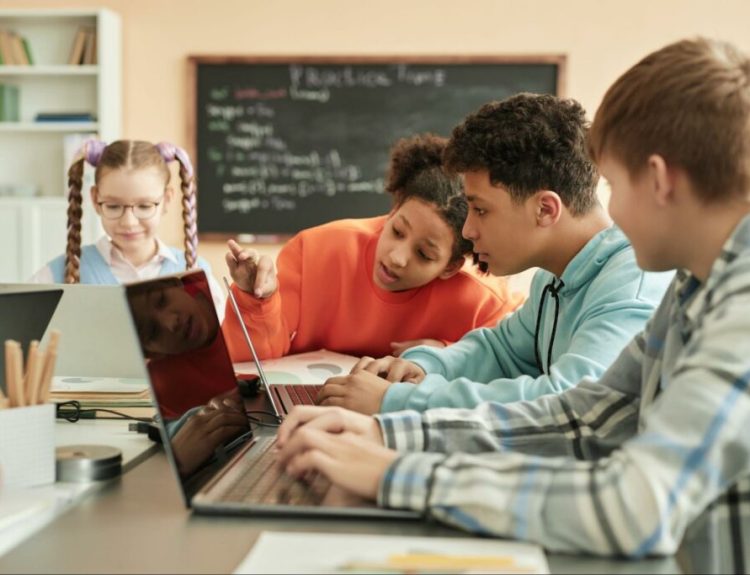Introduction: Education as the Silent Architect of Society
Education is often described as the cornerstone of civilization—a noble pursuit that transcends generations, builds nations, and empowers individuals. Yet, despite its universal importance, the nature and purpose of education have evolved dramatically over the centuries. In today’s hyperconnected, ever-changing world, education is no longer confined to dusty textbooks or rigid classrooms. It has become a dynamic, multifaceted experience—one that not only imparts knowledge but fosters critical thinking, creativity, and emotional intelligence. To understand education today is to explore a living, breathing force quietly shaping the trajectory of humankind.
The Evolving Definition of Education
The traditional image of education—a teacher lecturing a passive audience of students—no longer reflects the richness of modern learning. Today, education is experiential, personalized, and lifelong. It is as much about cultivating curiosity as it is about mastering content. This redefinition has brought about profound shifts in both how we teach and how we learn.
From Information to Transformation
Education was once synonymous with information delivery: memorizing facts, formulas, and historical dates. While foundational knowledge remains important, the modern approach values transformation over transaction. Students are encouraged to question assumptions, explore alternative perspectives, and apply their learning to real-world problems.
Lifelong Learning as the New Standard
No longer limited to youth, education is now a lifelong endeavor. Professionals return to learning to stay relevant in fast-evolving industries. Retirees take up new subjects out of pure intellectual curiosity. Online platforms, mobile apps, and micro-credentials have democratized access, allowing individuals to learn at their own pace and on their own terms.
The Role of Technology in Modern Education
The digital revolution has had a seismic impact on education. While it has not replaced the human touch, technology has expanded the reach and richness of learning in previously unimaginable ways.
Key Innovations Transforming Learning
-
E-Learning Platforms: Websites like Coursera, Khan Academy, and edX provide free or affordable access to high-quality courses from top universities.
-
Interactive Tools: Virtual simulations, gamified apps, and augmented reality are making complex subjects more accessible and engaging.
-
Artificial Intelligence: AI-powered tutors and chatbots offer personalized feedback, adapt to students’ learning styles, and help fill gaps in understanding.
Though concerns remain about screen fatigue and equity in access, the benefits of technology in enhancing flexibility, inclusivity, and scale are undeniable.
Teachers: The Timeless Pillars of Learning
Despite technological advancements, the role of teachers remains irreplaceable. In fact, as education grows more complex and nuanced, the educator’s role becomes even more vital.
More Than Instructors
Teachers today are mentors, facilitators, and even emotional support figures. They craft learning experiences, ignite intellectual passion, and guide students through both academic and personal growth. The most effective teachers do not merely impart knowledge—they inspire transformation.
The Need for Teacher Empowerment
For education systems to thrive, investing in teacher development is paramount. This includes:
-
Ongoing Professional Training: Keeping educators updated on new teaching methodologies and technologies.
-
Emotional Well-being Support: Addressing the burnout and mental health challenges many teachers face.
-
Collaborative Communities: Creating platforms where educators can exchange ideas, share resources, and build collective expertise.
Empowered teachers foster empowered students—and that cycle, if nurtured, has limitless potential.
Equity in Education: A Moral Imperative
While access to education has improved globally, deep disparities remain. Socioeconomic barriers, gender inequality, and geographic limitations continue to prevent millions from receiving quality education. Addressing these inequities is not only an ethical necessity but a strategic one.
Building Inclusive Education Systems
-
Bridging the Digital Divide: Ensuring students in rural and low-income areas have access to internet and digital devices.
-
Culturally Responsive Curricula: Recognizing diverse backgrounds and incorporating them into educational content.
-
Support for Marginalized Groups: Implementing targeted programs for students with disabilities, minority communities, and refugees.
True education uplifts not just individuals but entire societies. To ignore inequality is to stifle collective progress.
The Emotional and Social Dimensions of Learning
Education is not a purely intellectual exercise—it is deeply emotional and social. The pandemic made this more apparent than ever. Students learn best when they feel safe, supported, and emotionally engaged.
Cultivating the Whole Person
Modern education increasingly includes:
-
Social-Emotional Learning (SEL): Teaching empathy, resilience, and interpersonal skills alongside academics.
-
Mindfulness and Mental Health Programs: Helping students manage stress and build inner stability.
-
Collaborative Learning Environments: Encouraging teamwork, communication, and peer-to-peer learning.
These elements equip learners not just to succeed in exams, but to thrive in life.
Education for the Future: Skills That Matter
As automation reshapes job markets and global crises demand creative solutions, education must align with future needs.
Critical 21st-Century Skills
-
Problem-Solving and Critical Thinking: Navigating complex, uncertain situations.
-
Digital Literacy: Using and understanding technology with discernment.
-
Adaptability and Lifelong Learning: Embracing change and continuous improvement.
-
Global Citizenship: Understanding and respecting cultural diversity, ethical leadership, and civic engagement.
Preparing students for tomorrow means teaching them how to learn, unlearn, and relearn—a mindset as vital as any technical skill.
Conclusion: Reimagining Education for a Better World
Education, at its core, is an act of faith—a belief in the potential of every human being to grow, contribute, and transform the world. It is both intensely personal and profoundly public. While systems may differ and challenges persist, the universal truth remains: an educated society is a stronger, more compassionate, and more innovative one.
As we look ahead, the goal is not merely to refine education, but to reimagine it—to make it more inclusive, more human-centered, and more aligned with the world we wish to create. The future of education is not in the hands of technology, policy, or tradition alone—it lies in our collective will to empower every learner, in every corner of the globe, to dream bigger and achieve more.













